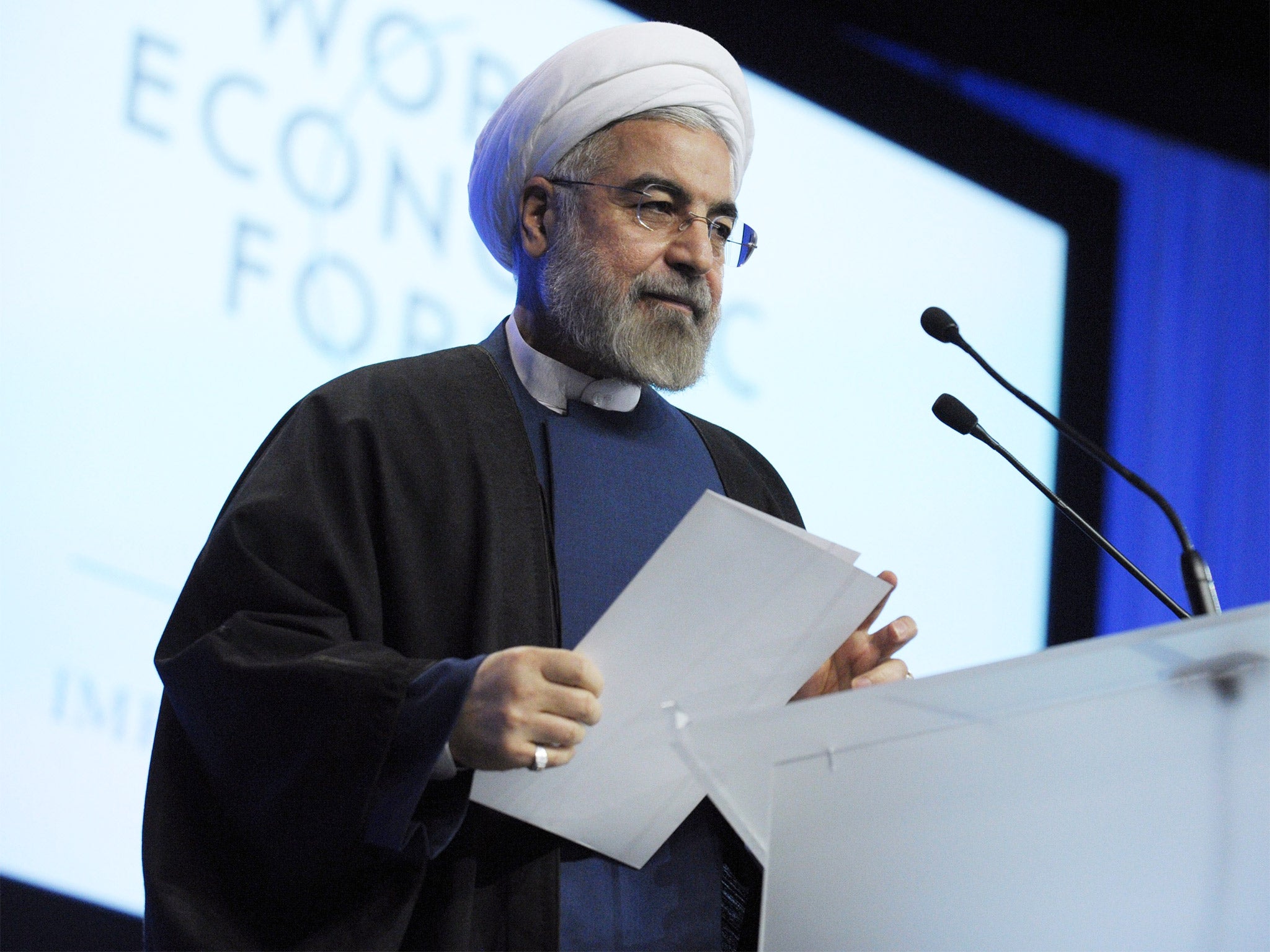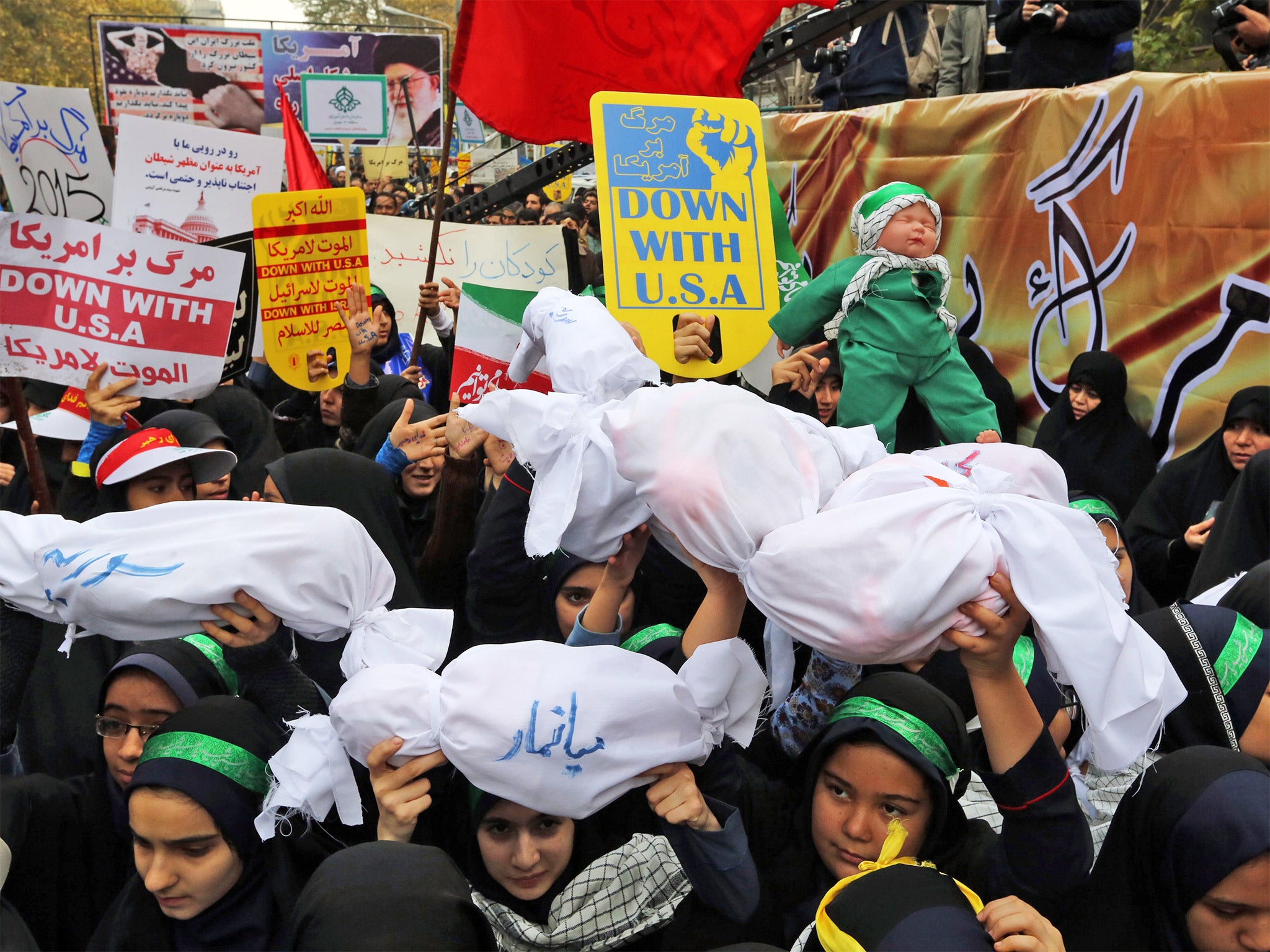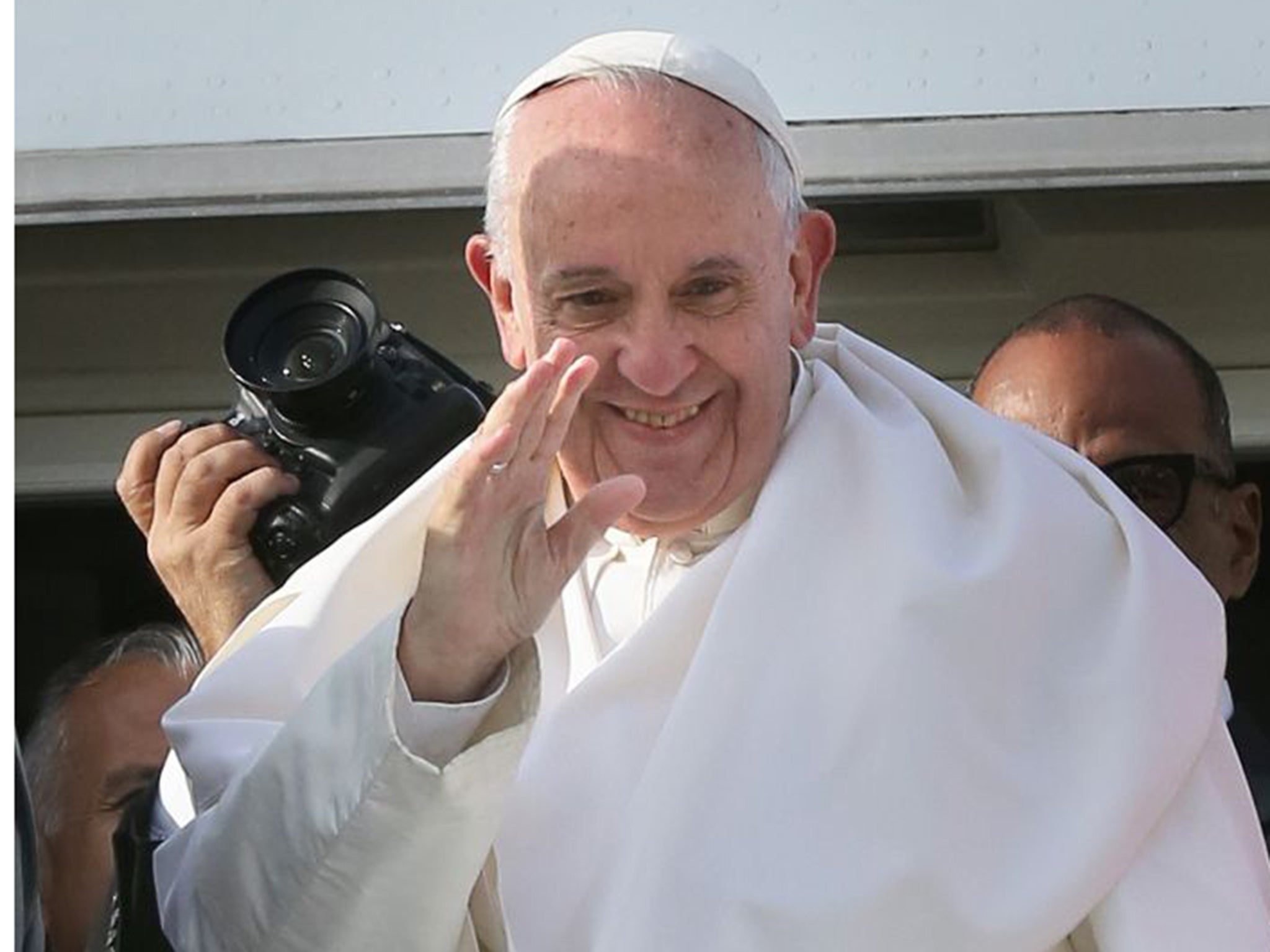Iran President Hassan Rouhani's first European visit shows his country is coming in from the cold
He will discuss spiritual matters with Pope Francis, but the Iranian President will also be talking business with the French and Italian leaders and, says Kim Sengupta, he will be negotiating from a position of power

Your support helps us to tell the story
From reproductive rights to climate change to Big Tech, The Independent is on the ground when the story is developing. Whether it's investigating the financials of Elon Musk's pro-Trump PAC or producing our latest documentary, 'The A Word', which shines a light on the American women fighting for reproductive rights, we know how important it is to parse out the facts from the messaging.
At such a critical moment in US history, we need reporters on the ground. Your donation allows us to keep sending journalists to speak to both sides of the story.
The Independent is trusted by Americans across the entire political spectrum. And unlike many other quality news outlets, we choose not to lock Americans out of our reporting and analysis with paywalls. We believe quality journalism should be available to everyone, paid for by those who can afford it.
Your support makes all the difference.He has travelled to the United States, China, Turkey, Afghanistan, Russia and a swathe of central Asia since he became Iran’s president in 2013. But apart from a brief foray to the Davos forum in Switzerland, Hassan Rouhani has not visited Europe – until this week.
Over the next few days he will meet the Pope and the leaders of Italy and France on the first visit by an Iranian president to any European Union nation for more than a decade.
His talks with Pope Francis will, the Vatican says, be “open and wide ranging, striving to pave the way for lasting friendship and trust” between the Islamic Republic and the Catholic Church.
Pope Francis strongly supported the agreement with international powers over Iran’s nuclear programme, declaring it “a definitive step towards a more secure and fraternal world”. And it is that agreement which has been the catalyst for Tehran’s diplomatic thaw with the West, a warming viewed by Israel and the right wing in the US with both antipathy and alarm.
After many years of mutual accusations and recriminations, Iran appears to be coming in from the cold. Just 48 hours before the presidential visit begins, Iranian officials will take their places at talks in Vienna attempting to salvage peace from Syria’s bloody civil war – a forum from which it had hitherto been barred. The presence of the delegation from Tehran is a tacit admission by the West that no settlement is likely without the participation of one of Bashar al-Assad’s chief backers and a major regional player.
Mr Rouhani has become a seasoned traveller since he came to power, but previously had not been exposed much to the limelight outside his own country. Western officials who have met him say he is an urbane and softly-spoken figure with an impressive grasp of realpolitik.
“Unlike the impression one may get from Israel and Republican hawks, he is not a blustering demagogue,” said a former senior British diplomat now working for a think-tank. “He claims to be a modern leader of a modern country, and that will be the impression projected on this trip.”
The European trip will not, however, be only about politics; a large representation from the public and private sectors of the economy will be among the official party. One of those travelling, Mohsin Jalalpur, the head of Iran’s Chamber of Commerce, Industries and Mines, said Mr Rouhani was a key driving force behind that.
“We expect commercial contracts to be signed,” Mr Jalalpur said. “New potential for joint investments by Iranian, French and Italian firms will be created. Participation in a joint economic co-operation conference, in the presence of the Iranian and French presidents, has been finalised. Similar important meetings and events will be held in Italy, in addition to a dinner banquet in the presence of the Italian prime minister where business can be discussed.”
A steady stream of business delegations accompanying European ministers have already made the journey to Iran, including one led by Britain’s Foreign Secretary, Philip Hammond.
Trade between Italy and Iran and France and Iran was worth €696m (£492m) and €481m, respectively, in 2013. But the easing of sanctions has led to expectations of a boom in a country which had been starved of foreign investment and goods. “We are talking about 80 million people who need energy supplies, who also need health care, who want to get back off their knees in the oil and gas business, so there are opportunities and chances,” said Joe Kaeser, the chief executive of Siemens, the German industrial conglomerate.
China, India and Japan are among those also busy pursuing Iranian trade, and Tehran wants the US and Europe to know that they should not be complacent about getting the lion’s share. “The countries that had been calling for implementing tougher sanctions against Iran are today overtaking each other in a rush to Tehran in search for business opportunities,” government spokesman Mohammed Baqr Nobakht said. “But they should realise that Iran will pursue its own interest and choose what’s best for us.”

This sense of assertiveness is increasingly in evidence among Iranian ministers and diplomats, especially when it comes to the Shia state’s Sunni rivals.
Attacks by Saudi Arabia on Tehran for supporting the Assad regime are answered with increasing vehemence. In a recent exchange, when the Saudi Foreign Minister, Adel al-Jubeir, accused Iran of “occupying Arab lands” in Syria, Iran’s deputy foreign minister responded that it was the Saudis who were “occupying” Yemen, where a Riyadh-led force is fighting Houthi rebels who are backed by Iran.
This is a distinct change from the previously more emollient tone from Tehran – the result, Iranian officials say, of the Gulf states rebuffing Iran’s overtures to form an anti-Isis coalition.
This assertiveness is also being seen domestically, with Mr Rouhani seemingly more prepared to stand up against conservative and theocratic forces. This week he made a very deliberate public statement in defence of public dissent, saying “the government must be criticised, the judiciary must be criticised, the parliament must be criticised”.

Mr Rouhani added the caveat that “criticism does not mean smearing, insulting, or lying”, but despite that he was fiercely denounced by Ayatollah Sadegh Larijani, the head of the judiciary, who said: “The president has made several comments… If the meaning is that justice is corrupt, this is libellous; if it is not, it is still an insult.”
It was the first time that Mr Rouhani has been in a public confrontation with the powerful cleric, but he has not apologised and his officials said the president did not want to be distracted from his duties and international obligations.
The last Pope to host an Iranian leader at the Vatican was John Paul II in 1999, and afterwards President Mohammad Khatami – who was making the first visit by an Iranian leader to Western Europe since the 1979 Islamic revolution – said one outcome was the “hope for the final victory of monotheism and morality”. Mr Rouhani, one suspects, will be focusing on temporal as well as spiritual matters during his landmark European tour.
Join our commenting forum
Join thought-provoking conversations, follow other Independent readers and see their replies
0Comments